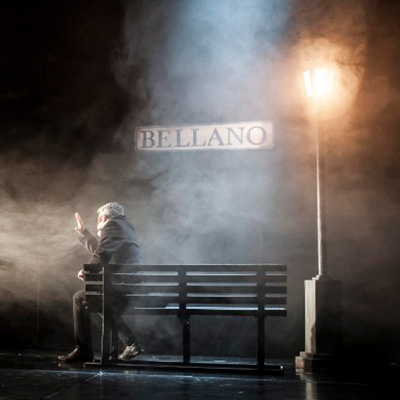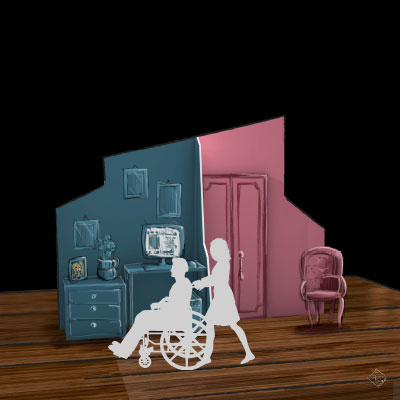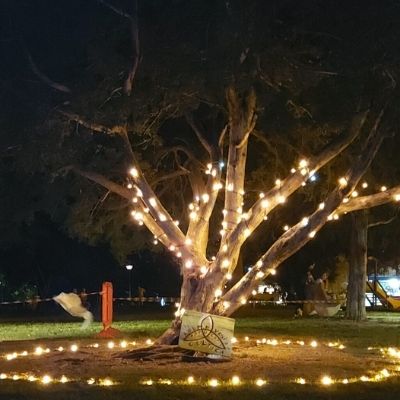Piano for sale
The show
It is the night of the Epiphany, a festive evening in Bellano.
“The Pianist”, so called because of his long, tapered hands, gets off the train.
It’s raining, it’s cold.
Examining the districts waiting for the crowd, the Pianist stumbles upon a sign posted on a door: “Piano for sale”.
Intrigued, he decides to enter: he will find himself living an experience that will change his life forever… Piano for sale is the story of a thief who has to choose between good and bad deeds: black and white, like the piano keys.
The gestures he will find himself making reveal a great desire to redeem his humanity.
In the background, in an almost mysterious dimension, there is an entire community, a country suspended – for one night – between legality and illegality, between licit and illicit, between ethical commandment and habit.
The theatrical version of Piano for sale will try to use the evocative power of the word, entrusted exclusively to the talent of a single actor called to give voice and body to all the characters in the story.It will also exploit the power of music, composed especially for this show, to restore the suffused atmospheres and the shadows of this novel, perpetually poised between dream and reality, without forgetting the dazzling flashes of its humour.
A co-production of the Fondazione Aida and ARS CreazioneeSpettacolo, with AndrianoEvangelisti, original music by Patrizio Maria D’Artista and directed by RaffaeleLatagliata, who worked closely with Vitali, who for the first time transpose by himself the dramaturgy of one of his novels.
To embellish everything, immersing the representation in an atmosphere of dream, the music of Patrizio Maria D’Artista, artistic producer, composer and arranger who has already signed the soundtrack of several theatrical and television works.
You can listen to the music onSpotify ,AppleMusic and on other music streaming platforms.
Piano for sale is the story of a thief who has to choose between good and bad deeds: black and white, like the piano keys.
A show based on the best seller of the same name by Andrea Vitali, with Adriano Evangelisti under the direction of RaffaeleLatagliata.
You can listen to the music on Spotify , AppleMusic and on other music streaming platforms.




